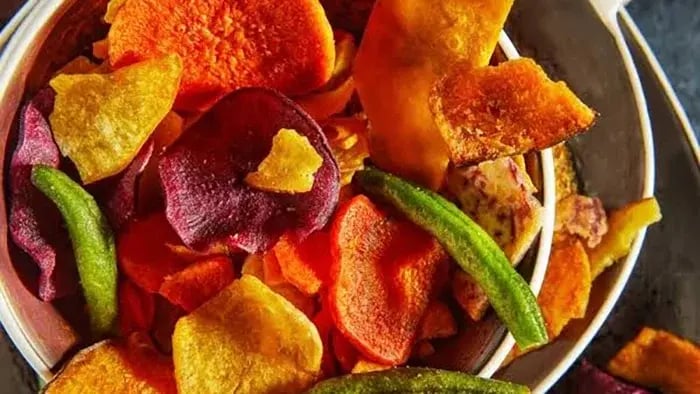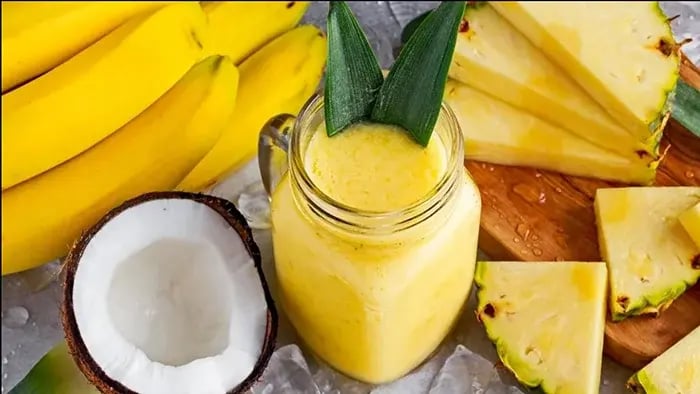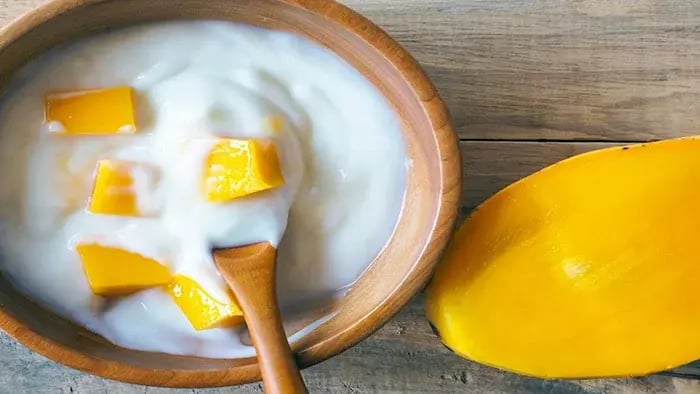- Fruits And Vegetables Are Rich In Vitamins And Minerals
- Fruits And Vegetables Protect Kids From Diseases
- Fruits And Vegetables Promote Good Health
- Fruits And Vegetables Are Wonderful Snacks Between Meals
- Fruits And Vegetables Are Also Delicious
- Vegetable Chips
- Smoothies
- Fruit And Yogurt
Fruits and vegetables are important for all humans, but even more so for growing children. But few children prefer having vegetable sticks and dip for a snack, they would rather have some chips or nachos. It is not their fault, as children do not learn, they mimic their parents. Therefore, in order to incorporate fruits and vegetables into their diet, parents must understand and inculcate healthy eating habits in themselves. And once your children have fun while eating fruits and vegetables, there is no looking back.
Fruits and vegetables should form a significant part of your diet today, ideally forming at least one-half of your plate. If that were the case, then parents must understand the role of fruits and vegetables in healthy eating habits first.
Role Of Fruits And Vegetables In Healthy Eating Habits
1. Fruits And Vegetables Are Rich In Vitamins And Minerals
Fruits and vegetables are the storehouses of vitamins A, C, and K, and minerals calcium, magnesium, zinc, folate, phosphorus, and potassium. They are also replete with dietary fiber, antioxidants, and phenolic compounds that protect the body from diseases and oxidative stress. Consuming fruits and vegetables daily will help you and your kids reach their respective micronutrient goals and have a healthy body.
2. Fruits And Vegetables Protect Kids From Diseases
Fruits and vegetables protect children and adults alike from all kinds of diseases, such as diabetes mellitus, stroke, heart diseases, some types of cancer, atherosclerosis, kidney and liver problems, and Alzheimer’s. Thanks to their high levels of antioxidants and phytochemicals like polyphenols, phytoestrogens, and flavonoids, fruits, and vegetables boost our immunity and lower the risk of many diseases. Parents better take note and make their kids consume more seasonal fruits and vegetables during season change to avoid falling sick.
3. Fruits And Vegetables Promote Good Health
Fruits and vegetables improve the overall quality of life. Those who consume lots of fruits and vegetables daily remain much healthier and have a healthy height and weight. Not only do they keep obesity, constipation, and hypertension away, but also help lower cholesterol levels. Therefore, it is better to include fruits and vegetables a lot more in your daily meals for the extra kick of health and energy.
4. Fruits And Vegetables Are Wonderful Snacks Between Meals
Fruits and vegetables serve as excellent snacks between meals as they offer the perfect jolt of refreshment, energy, and temporary satiety which will be fulfilled soon by a meal. Unlike other snacks, fruits are relatively low in calories while containing natural sugars, making it the perfect answer to your kid’s sweet tooth, while vegetables pair well in savory settings and make the best mid-morning or evening snack.
5. Fruits And Vegetables Are Also Delicious
Finally, the core of the onion. Fruits and vegetables are actually tasty in their own ways. While most fruits are refreshing and zesty, vegetables are more robust and earthy in taste. Therefore, it is better for parents to identify their child’s primary flavor preferences and choose fruits and vegetables accordingly. As they develop a taste and budding healthy eating habit, switch up things with earthier, or their less-liked veggies.
Quick Ways Of Incorporating Fruits And Vegetables Into Healthy Eating Habits
1. Vegetable Chips

Vegetable chips are a great way of incorporating vegetables into your kids’ diet without any tantrums. Simply slice your vegetable of choice as thinly as possible, then add a light spray or drizzle of olive oil or cooking spray. Remember to season well, with salt, pepper, and paprika before popping them into the air fryer or microwave for 3 to 5 minutes. Take them out before they turn brown and enjoy healthy, homemade vegetable chips for a snack.
2. Smoothies

Smoothies are a great way of incorporating fruits and vegetables into your kids’ healthy eating habits. Blend spinach with some pineapple, diced cucumbers, lemon juice, honey, coconut water, and vegan yogurt for a luscious and refreshing smoothie that looks green but tastes like a Bali beach.
3. Fruit And Yogurt

Your kids may not like having fruits on their own, but when you pair them with some yogurt, honey, and a generous sprinkling of crushed dry fruits, the snack becomes a game-changer, both in terms of nourishment and nutrition.
Bottom Line
Always remember to stay honest and sharp while answering your kids’ queries about ingredients. You do not want to lie but need to be terse till they give the food a try. According to their reaction, casually and calmly explain the benefits of the dish while highlighting the preparation and creative presentation (which is a must). Patience is key. It may take them up to 10 times to start liking a particular vegetable and that’s okay. If they understand the role of fruits and vegetables in healthy eating habits and share the culinary occasion with their parents, improvement in health and habits will happen.
Kaushiki Gangully is a content writing specialist with a passion for children's nutrition, education, and well-being. With more than five years of writing experience and a science-based background, she provides nuanced insights to help families raise happy, healthy kids. Kaushiki believes in making learning and healthy eating fun, empowering parents with practical, easy advice.
The views expressed are that of the expert alone.
The information provided in this content is for informational purposes only and should not be considered a substitute for professional medical advice, diagnosis, or treatment. Always seek the advice of your physician or another qualified healthcare provider before making any significant changes to your diet, exercise, or medication routines.
















